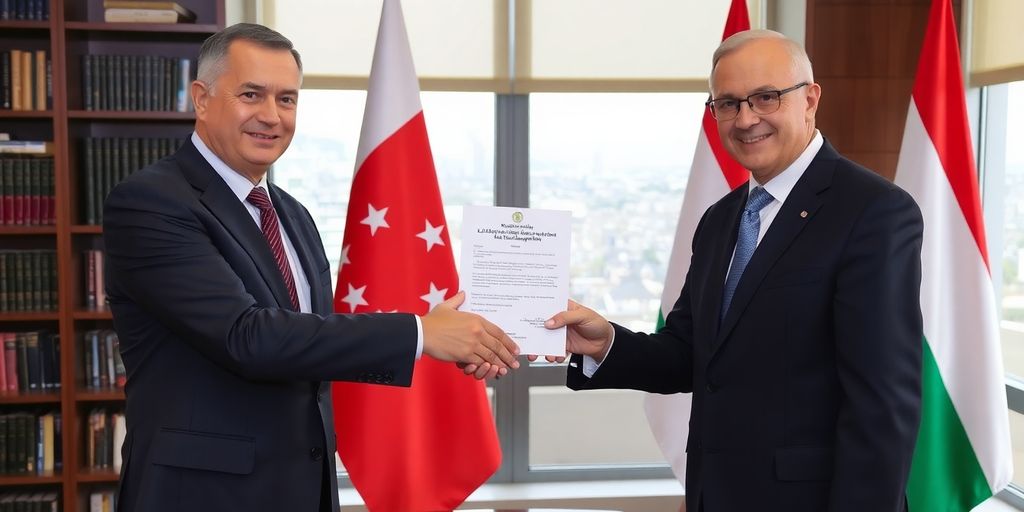Kosovo’s government has recently approved a significant initiative aimed at enhancing cooperation with Hungary by exchanging and protecting classified information. This move comes amid rising tensions in the Balkans, where Hungary, led by Prime Minister Viktor Orbán, is viewed as Serbia’s closest ally within the European Union.
Key Takeaways
- Kosovo’s government has approved an initiative to exchange classified information with Hungary.
- Hungary is seen as Serbia’s closest ally in the EU, raising concerns about regional dynamics.
- The initiative aims to bolster security cooperation between the two nations.
Background of the Initiative
The decision to exchange classified information is part of a broader strategy by Kosovo to strengthen its security framework and diplomatic ties with neighboring countries. The initiative reflects Kosovo’s ongoing efforts to navigate complex geopolitical relationships in the Balkans, particularly in light of Serbia’s historical influence in the region.
Implications for Regional Security
The collaboration between Kosovo and Hungary could have several implications for regional security:
- Enhanced Intelligence Sharing: By exchanging classified information, both countries aim to improve their intelligence capabilities, which could lead to better preparedness against potential threats.
- Strengthened Diplomatic Ties: This initiative may pave the way for deeper diplomatic relations between Kosovo and Hungary, potentially influencing Hungary’s stance on Kosovo’s international recognition.
- Impact on Serbia: Given Hungary’s close ties with Serbia, this move could complicate the already delicate balance of power in the Balkans, prompting Serbia to reassess its strategies in the region.
Reactions from Political Leaders
The announcement has elicited varied reactions from political leaders and analysts:
- Support from Kosovo Officials: Kosovo’s leaders have expressed optimism about the initiative, viewing it as a step towards greater security and stability in the region.
- Concerns from Serbia: Serbian officials have criticized the move, arguing that it could escalate tensions and undermine efforts for dialogue between Kosovo and Serbia.
- EU Perspective: The European Union has yet to comment officially on the initiative, but analysts suggest that it may complicate Kosovo’s EU integration process, given Hungary’s controversial position within the bloc.
Future Prospects
As Kosovo and Hungary embark on this new chapter of cooperation, several questions remain:
- Will this initiative lead to more formal alliances in the region?
- How will Serbia respond to this growing partnership?
- What impact will this have on Kosovo’s aspirations for EU membership?
The coming months will be crucial in determining the effectiveness of this initiative and its broader implications for the Balkans. As geopolitical dynamics continue to evolve, the relationship between Kosovo and Hungary will be closely monitored by both regional and international observers.






